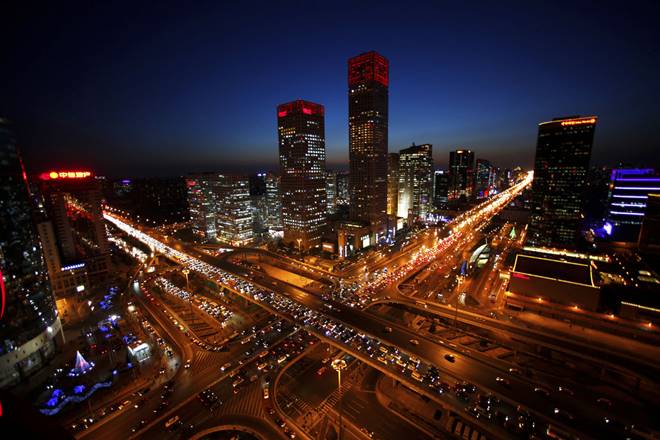India on Thursday said that it is opposed to Chinese One Belt One Road (OBOR) initiative since the China-Pakistan Economic Corridor (CPEC) passes through the Indian territory. “We are all for promoting connectivity… but on the OBOR, our position is that since the so-called CPEC forms a part of OBOR, and it passes through Indian territory, that is where our difficulty lies,” External Affairs Ministry Spokesman Gopal Baglay said. He was non-committal on India’s presence at a conference on OBOR, which China is hosting in May, according to Indian Express.
The spokesman said that India was awaiting details of the Chinese suggestion a day after China, as current BRICS chair, indicated “widening” of the five-nation grouping during its summit later this year.
Chinese Foreign Minister Wang Yi’s had on Wednesday said that the grouping will build a platform for south-south cooperation, exploring a BRICS-plus model by holding talks with other developing countries to establish a more extensive partnership. Baglay noted that every BRICS chair has arranged outreach alongside the grouping’s events and brought a flavor of its geography to the participants.
Also Watch:
President Xi has been aggressively pursuing his hugely ambitious One Belt One Road(OBOR) initiative, which aims to significantly augment Chinese strategic and economic influence across the globe through the creation of a vast network of infrastructure projects. The primary rationale of these projects is strategic, not economic, and the large external commitments that they potentially entail, conservatively estimated at $1trillion, sans escalation costs, pose an added risk to an already overextended economy.
In 2013, China’s president, Xi Jinping, proposed establishing a modern equivalent, creating a network of railways, roads, pipelines, and utility grids that would link China and Central Asia, West Asia, and parts of South Asia. This initiative, One Belt and One Road (OBOR), comprises more than physical connections. It aims to create the world’s largest platform for economic cooperation, including policy coordination, trade and financing collaboration, and social and cultural cooperation. Through open discussion, OBOR can create benefits for everyone.


